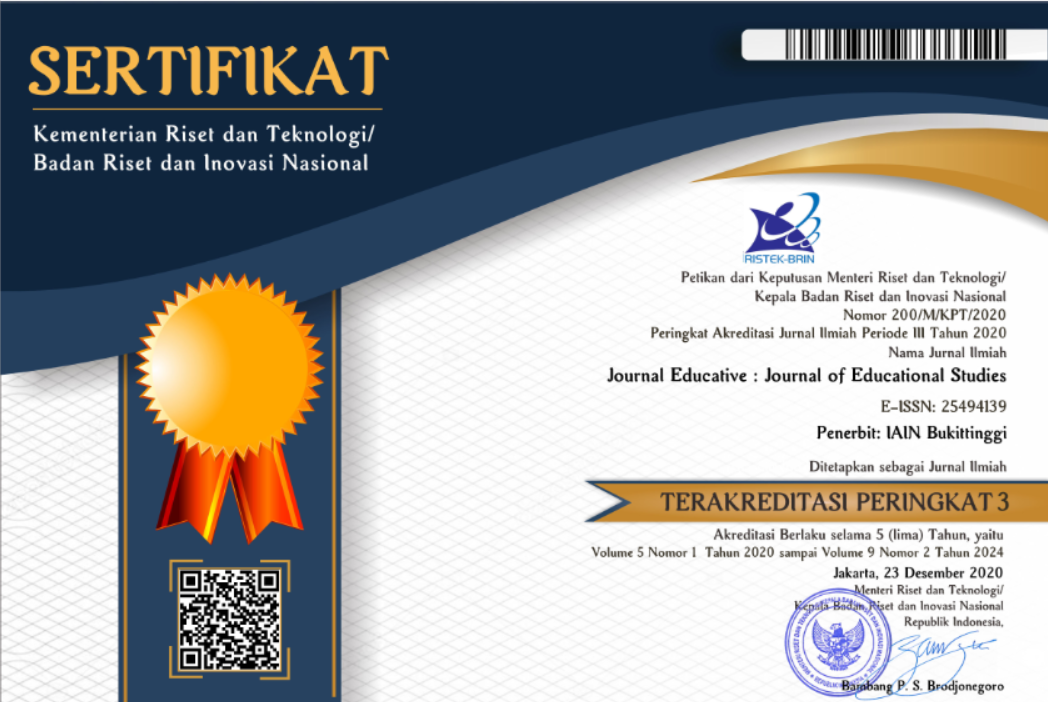An Analysis of Students’ Problem in Writing Recount Text
DOI:
https://doi.org/10.30983/educative.v2i1.316Abstract
References
Al- Khasawneh, Fadi Maher Salah. 2010. Writing for Academic Purpose: problems faced by Arab postgraduate students of the college of business,
umm. ESP world journal, 28(2), 1-23. http:esp-esp-world.info. Retrieved on January 4th, 2016.
Creswell W, (2014), Research Design: qualitative, quantitative, and Mixed Methods Approaches. USA: SAGE Publications.
Fulwiler, Toby, (2002), A Personal Approach to Academic Writing. Boyton/Cook Publisher, Inc.
Gay, L.R, and Peter Airasian, (2000), Educational Research Competencies for analysis and applications. New Jersey: Prentice-Hall,Inc.
Hyland, Ken, (2008), 60 Writing Topics.United Kingdom. Cambridge University Press.
Hyland, Ken, (2003), Second Language Writing. New York: Cambridge University Press.
Kirani, Elenneri, 2008 Area of Problems in writing recount text. Journal pendidikan innovative, 4 (issues), https://jurnaljpi.files.wordpress.com/2009/09/vol-4-no-1-elenneri-
karani.pdf. Retrieved on January 6th, 2016.
Msanjila, Yohana P. 2005. Problem of Writing in Kiswahili: A Case Study of Kigurunyembe and Morogoro Secondary Schools in Tanzania. 14(1):15-25
http://www.eajournals.org.Retrieved on January 6th, 2016.
Martin, (2006), English Text System and Structure. Natherlands: John Benjamin C.o.
Ramli, Doni. 2013. An Analysis on Students‟ Errors in Writing Recount Text. Journa Untan http://journaluntan.ac.id/index.php/jpdpb/article/viewfile/964/pdf Retrieved on January 6th, 2016.
Downloads
Published
How to Cite
Issue
Section
Citation Check
License
Authors who publish with this journal agree to the following terms:
1. Authors retain copyright and grant the journal right of first publication with the work simultaneously licensed under a Creative Commons Attribution License that allows others to share the work with an acknowledgment of the work's authorship and initial publication in this journal.
2. Authors are able to enter into separate, additional contractual arrangements for the non-exclusive distribution of the journal's published version of the work (e.g., post it to an institutional repository or publish it in a book), with an acknowledgment of its initial publication in this journal.
3. Authors are permitted and encouraged to post their work online (e.g., in institutional repositories or on their website) prior to and during the submission process, as it can lead to productive exchanges, as well as earlier and greater citation of published work (See The Effect of Open Access).




